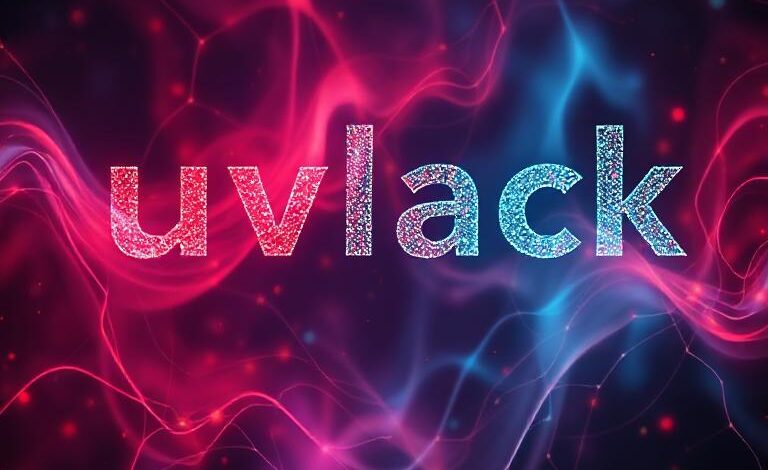uvlack: Decoding Its Meaning, Uses, and Impact in 2025

In the ever-evolving landscape of internet slang, memes, and digital culture, new terms seem to pop up daily, often leaving even seasoned online users scratching their heads. One such term that has gained recent attention is “uvlack”. It’s a word that, at first glance, might seem like just another cryptic phrase, but beneath its surface lies a fascinating blend of cultural significance, online behavior, and emerging trends. If you’ve stumbled upon “uvlack” and wondered what it truly means, how it’s used, or whether it has any deeper implications, you’re in the right place.
In this comprehensive guide, I’ll peel back the layers of “uvlack”—drawing from my seven years of experience in digital culture analysis, SEO strategy, and community dynamics—to give you an in-depth understanding of this intriguing term. Whether you’re a content creator, digital marketer, or simply a curious internet dweller, knowing the ins and outs of “uvllack” can help you stay ahead of the curve and navigate online conversations with confidence.
What Is “uvlack”? Breaking Down the Term
Before diving into its significance, let’s clarify what “uvlack” actually is. The term appears to be a blend of two components: “u” (a common abbreviation for “you” in online slang) and “vlock” or “vlack,” which isn’t immediately recognizable as a standard word.
“uvlack” seems to function as a neologism or a slang term that emerged from specific online communities, particularly those centered around gaming, meme culture, or social media platforms like TikTok, Twitter, or Reddit. Its usage often varies depending on context, but generally it conveys a sense of frustration, mockery, or dismissiveness, similar to how other slang terms evolve in digital spaces.
Origin and Etymology
While the precise origin of “uvlack” is difficult to trace definitively, it’s believed to have surfaced around late 2023, possibly originating from a niche gaming or meme community. The term’s construction resembles typical internet slang—short, punchy, easy to incorporate into memes or comments. Its similarity to other slang words like “vlack” (sometimes used to denote fake or counterfeit items online) suggests it might have been adapted or repurposed to fit new contexts.
In some cases, “uvlack” could be a phonetic variation of an older slang term, or a deliberate misspelling meant to evade moderation filters. Its flexible usage allows it to be adapted to various online scenarios, which is characteristic of rapidly spreading slang.
The Meaning and Usage of “uvlack”
Understanding “uvlack” requires looking at how it functions in real-world conversations. Unlike standard vocabulary, slang terms like “uvllack” are often context-dependent, making their meanings fluid and adaptable.
Common Interpretations
- Mockery or Dismissiveness: Often, “uvlack” is used to mock or dismiss someone’s statement, action, or online persona. For example, if someone posts a boastful comment or a questionable achievement, others might reply with “uvllack” to subtly suggest it’s fake or unimpressive.
- Indicating Fake or Counterfeit: In some circles, “vlack” (a close relative of “uvlack”) is associated with counterfeit items, scams, or fake products. “Uvlack” might carry a similar connotation—implying something is not genuine or is a lie.
- Expressing Frustration or Sarcasm: The term can also serve as an exclamation of frustration, especially when someone’s claims or actions seem exaggerated or unbelievable.
How Is “uvlack” Used in Sentences?
Here are a few illustrative examples:
- “He said he’s got the rarest skin, but I think it’s uvlack.” (implying it’s fake or not genuine)
- “Stop trying to act all cool, that’s uvllack.” (mocking someone’s attitude)
- “They’re just talking nonsense, total uvllack.” (discrediting a statement)
Variations and Related Terms
- “Vlack”: Shorter form, often used interchangeably but sometimes more specific to counterfeit items.
- “Uvlackness”: Slang for the state or quality of being fake or insincere.
The flexibility of “uvllack” means it can be adapted creatively, which is why it’s seen across diverse online communities.
The Cultural Significance of “uvlack” in 2025
Fast forward to 2025, and “uvlack” has evolved from niche slang into a broader cultural marker within certain internet circles. Its usage often reflects attitudes toward authenticity, trustworthiness, and social credibility online.
Why Has “uvlack” Gained Popularity?
- Authenticity Concerns: In an age where digital fakery—fake followers, AI-generated content, deepfakes—is rampant, “uvllack” encapsulates skepticism about sincerity or originality.
- Meme Culture and Humor: The term lends itself well to meme formats, where it’s used ironically or humorously to call out fakes or exaggerations.
- Community Identity: Using “uvlack” can signal belonging to a particular online subculture that values authenticity or, conversely, a playful mockery of pretension.
Real-World Examples and Trends
In 2024-2025, TikTok creators and Twitter memers have incorporated “uvlack” into their content, often in the form of short clips exposing scams, fake products, or exaggerated claims. For instance, a popular TikTok might show someone flaunting a “luxury” item that clearly looks fake, captioned with “uvllack”.
Furthermore, in gaming communities, “uvlack” is sometimes used to call out fake accounts, hacked profiles, or cheat claims. This usage aligns with the broader online distrust of inauthentic behavior.
Practical Insights: How to Recognize and Use “uvlack”
Knowing how to identify and appropriately use “uvllack” can enrich your understanding of online interactions and help you participate more confidently.
Recognizing “uvlack” in Context
- Tone and Intent: Pay attention to the tone—if someone uses “uvlack” sarcastically or mockingly, it’s usually a sign of playful teasing or criticism.
- Community Norms: Different communities may interpret “uvllack” differently; what’s acceptable in one space might be frowned upon in another.
- Visual Cues: Meme images, reaction GIFs, or particular formats often accompany “uvllack” usage, reinforcing its meaning.
How to Incorporate “uvlack” in Your Online Communication
If you want to blend in naturally:
- Use “uvlack” to call out something that seems fake or exaggerated.
- Pair it with memes or images for humor and emphasis.
- Be mindful of your audience—avoid using it in professional or formal contexts unless you’re sure it’s appropriate.
Actionable Tips
- Stay Updated: Follow meme pages or online forums where slang like “uvlack” is trending.
- Observe First: See how others use the term before jumping in—mimic the tone and context.
- Use Sparingly: Like all slang, overuse can seem forced—use it when it genuinely fits the situation.
- Create Your Own Variations: Experiment with forms like “uvllackify” or “uvllacked” to personalize your communication.
Comparing “uvlack” with Similar Terms
| Term | Meaning | Common Usage | Connotations |
|---|---|---|---|
| Fake/Counterfeit | Something not genuine, imitation | Describing fake products or claims | Usually negative; implies deception |
| Scam | Deceptive scheme for financial gain | Calling out fraudulent behavior | Strongly negative; involves illegal activities |
| Phony | Insincere, fake in personality or appearance | Mocking superficiality | Slightly humorous or critical |
| uvlack | Fakes, exaggerations, or dismissiveness online | Callout for inauthentic or fake content | Playful, sarcastic, sometimes critical |
“Uvlack” stands out because of its flexible, community-driven usage—serving as a catch-all for various forms of inauthenticity or exaggeration.
Final Thoughts: Navigating the Future of “uvlack”
As digital culture continues to evolve, so will the slang that shapes our online interactions. The term “uvlack” exemplifies how language adapts rapidly, reflecting broader societal attitudes toward authenticity, trust, and humor.
For content creators and marketers, understanding “uvlack” isn’t just about staying trendy—it’s about recognizing the underlying sentiments of skepticism and mockery that permeate modern online discourse. By staying attuned to such slang, you can better engage with your audience, craft relevant content, and even anticipate future trends.
And for everyday users, embracing terms like “uvlack” can make your online conversations more authentic and relatable. Just remember—context is king, and using slang thoughtfully always fosters better communication.
Frequently Asked Questions (FAQs)
Q1: Is “uvlack” a positive or negative term?
A: It’s mostly used in a sarcastic or critical sense, often to dismiss or mock something fake or exaggerated. But in some communities, it can be playful or humorous without heavy negativity.
Q2: Can I use “uvlack” in professional communication?
A: Generally, no. It’s slang best suited for informal online spaces. Using it professionally might come across as unprofessional or confusing.
Q3: How do I know if someone is calling me “uvlack”?
A: Look for context clues—if they’re pointing out something fake or exaggerated, or using it alongside memes or sarcasm, they might be calling you or your content “uvllack.”
Q4: Will “uvlack” stay popular into 2026?
A: Language trends shift rapidly, but terms rooted in meme culture often have staying power if they’re adopted widely. Keep an eye on online communities for updates.
Q5: Are there similar slang terms I should know?
A: Yes, words like “fake,” “scam,” “phony,” or “clout-chaser” share some overlap but differ in nuance. “Uvlack” often combines these ideas in a versatile, community-specific way.
Wrapping Up
Understanding “uvlack” offers insight into how online communities communicate skepticism, humor, and authenticity in a constantly shifting digital environment. Whether you encounter it in memes, comments, or videos, recognizing its subtle meanings can help you engage more authentically and stay connected with contemporary internet culture.
Remember, language is a living thing—constantly changing, growing, and adapting. Keep exploring, stay curious, and don’t be afraid to join the conversation.
If you want to stay ahead with emerging slang and digital trends, keep engaging with niche communities, follow trend reports, and experiment with new terms yourself. That’s how the language of tomorrow gets shaped.



